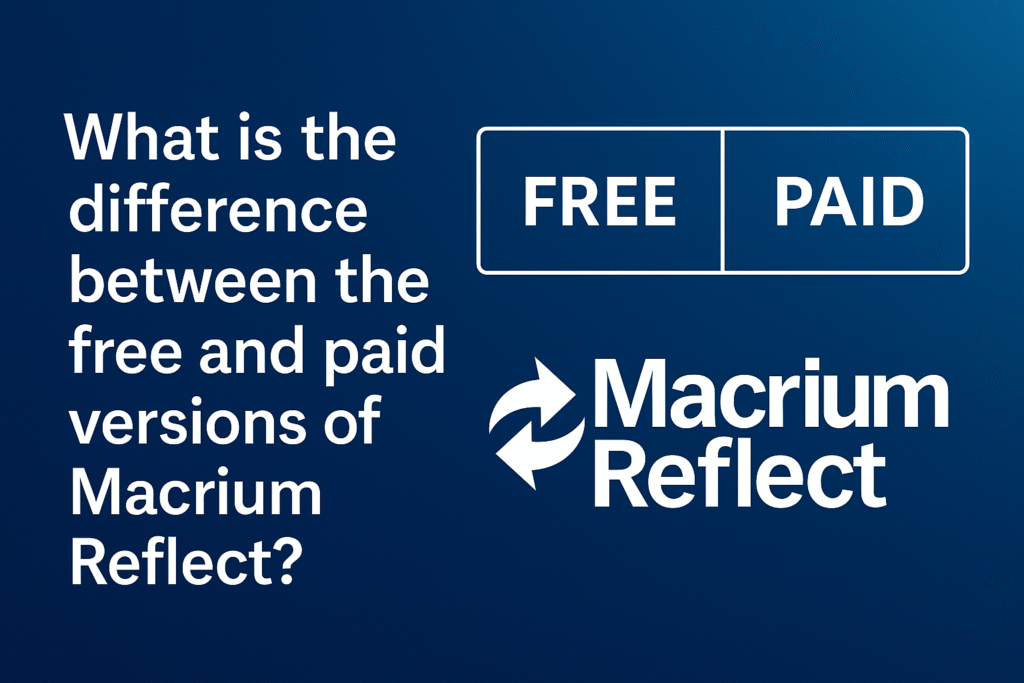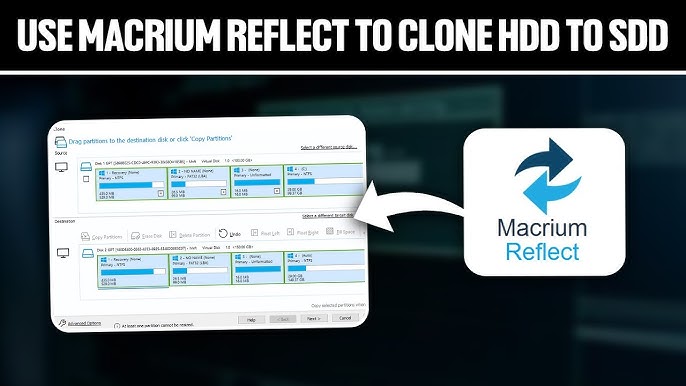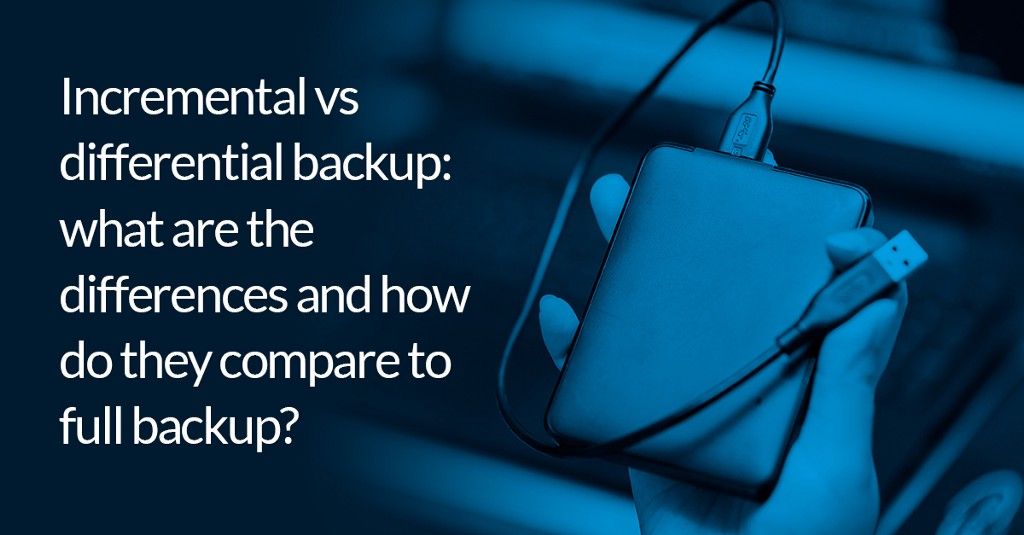Macrium Reflect is a powerful disk imaging and backup software designed to provide users with reliable data protection. Whether you’re a home user or a business, Macrium Reflect offers robust tools for creating backups of your system, restoring files, and safeguarding critical data. The software is available in both free and paid versions, each offering different features suited to various needs. In this article, we will explore the differences between the free and paid versions of Macrium Reflect in detail, discussing the key features, limitations, and when it is worth upgrading to the paid version.
The Core Functionality of Macrium Reflect
Macrium Reflect, regardless of the version, is primarily known for its disk imaging capabilities. It allows users to create backup images of their entire hard drive or specific partitions, which can be used for system recovery in the event of data loss, hardware failure, or system corruption. The software also supports incremental and differential backups, which means that only the changes made since the last backup are saved, improving efficiency and reducing storage requirements.
The free version of Macrium Reflect offers many of the core functionalities that make it a go-to choice for individual users looking to protect their data. However, the paid versions of Macrium Reflect—such as the Home, Workstation, Server, and Technician editions—unlock additional features designed for professional use or those who need more comprehensive data protection solutions.
Key Differences in Features
Backup Options
The free version of Macrium Reflect offers essential backup options that are suitable for basic home use. Users can create full backups of their system, perform incremental backups, and schedule regular backups to ensure their data remains protected. However, some advanced backup features are exclusive to the paid versions.
The paid versions, such as Macrium Reflect Home, include the ability to create differential backups. A differential backup captures all changes made since the last full backup, unlike an incremental backup, which only captures changes since the previous backup (whether full or incremental). This feature provides users with more flexibility and faster recovery times compared to the free version’s incremental backups.
Additionally, the paid versions offer a more advanced backup scheduling system. For example, users can set up specific backup windows, backup retention policies, and the ability to run backups when the system is idle. These features are especially beneficial for businesses or professionals who need to manage large numbers of devices or require more customization in their backup processes.
Image and File Recovery
One of the most critical functions of Macrium Reflect is its ability to restore data when disaster strikes. The free version supports basic image and file recovery, but there are some limitations when compared to the paid versions.
The free version of Macrium Reflect allows users to restore full disk images or individual files from their backups, which is suitable for most home users. However, more advanced recovery options, such as the ability to restore data to dissimilar hardware (also known as re-deploying), are exclusive to the paid versions. This feature is especially useful for businesses that may need to restore systems to completely different hardware configurations or for users who upgrade their hardware frequently.
Paid versions like Macrium Reflect Home and Workstation also include a feature called Rapid Delta Restore (RDR). This technology speeds up the restoration process by only restoring the blocks of data that have changed, reducing recovery time significantly. While the free version offers solid recovery capabilities, the paid versions provide faster, more efficient recovery options that are essential for businesses with large volumes of data to protect.
Cloning Disks
Disk cloning is another key feature of Macrium Reflect, allowing users to copy the entire contents of one drive to another. This is often used for upgrading hard drives, migrating data, or setting up identical systems. While both the free and paid versions support basic disk cloning, the paid versions offer more advanced features in this area.
The free version allows users to clone a hard drive to another drive, but it lacks some of the advanced disk management options available in the paid versions. Paid versions like Macrium Reflect Home and Workstation offer features such as the ability to resize partitions during the cloning process and to handle more complex drive configurations, such as GPT (GUID Partition Table) disks.
Encryption and Security
Data security is a growing concern, and Macrium Reflect addresses this with its encryption features. The free version includes basic encryption options, allowing users to password-protect their backups to prevent unauthorized access. However, it does not support more advanced encryption algorithms or the ability to use hardware-based encryption.
Paid versions of Macrium Reflect, such as the Home edition, offer advanced AES-256 encryption for backup files. This encryption standard is widely regarded as one of the most secure, and it ensures that backups are protected from unauthorized access even if the backup files are stolen or compromised. Additionally, paid versions support the use of encryption keys and the integration of hardware-based encryption solutions for improved security.
Support and Updates
The free version of Macrium Reflect provides community-based support, which may be sufficient for users who are familiar with backup software and have a basic understanding of how the system works. However, when issues arise, free users may have to rely on online forums, documentation, and troubleshooting guides.
On the other hand, the paid versions of Macrium Reflect come with priority technical support, ensuring that users can get professional assistance when needed. This is particularly important for businesses or users with mission-critical data, where any downtime can result in significant losses. Paid users also receive regular software updates, including bug fixes, new features, and performance improvements. While free users still receive updates, they may not have access to the latest features or advanced capabilities offered in newer versions of the software.
Network and Remote Backup
For businesses and professionals, the ability to back up multiple systems across a network or remotely is a crucial feature. Macrium Reflect’s free version does not support network or remote backup features, which can limit its usefulness in a corporate or multi-device environment.
Paid versions such as the Workstation and Server editions offer full support for network and remote backups. These editions allow users to back up systems over a local area network (LAN) or even remotely over the internet. Additionally, the Workstation and Server editions provide centralized management tools for monitoring and managing backups on multiple systems, which is essential for larger organizations or IT departments.
When to Upgrade to a Paid Version
While the free version of Macrium Reflect is a highly capable tool for individual users who need reliable backups, there are several situations where upgrading to a paid version may be necessary. If you’re a home user with basic backup needs, the free version may be sufficient. However, if you require more advanced features such as disk cloning with partition resizing, advanced encryption, differential backups, or priority support, the paid versions will provide the additional capabilities you need.
For businesses, the paid versions of Macrium Reflect are almost essential. The ability to restore data to dissimilar hardware, perform network backups, manage backups on multiple systems, and access professional technical support can significantly improve the reliability and efficiency of your backup strategy.
Conclusion
Macrium Reflect is an excellent choice for anyone looking to protect their data, but the differences between the free and paid versions are significant. The free version offers a solid set of features, including full backups, incremental backups, and basic recovery options. However, if you need more advanced functionalities such as differential backups, faster recovery times, advanced encryption, and technical support, the paid versions are the better option.



